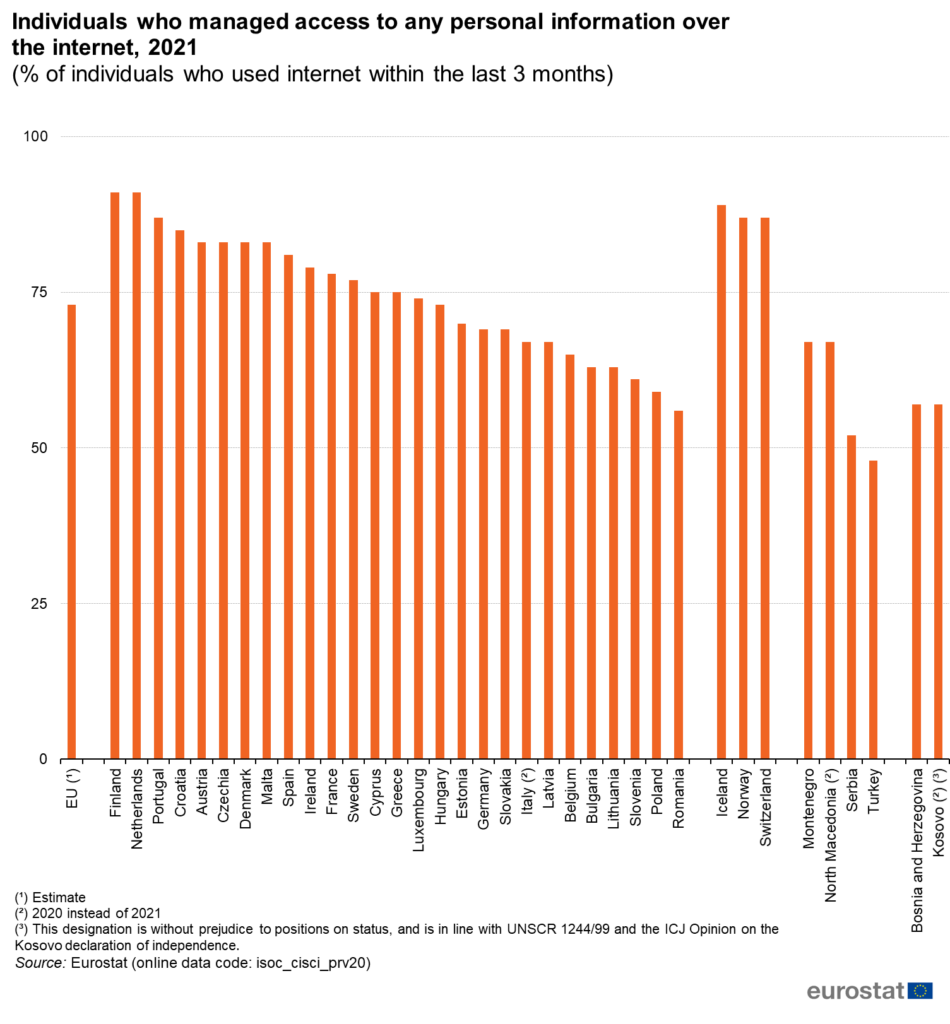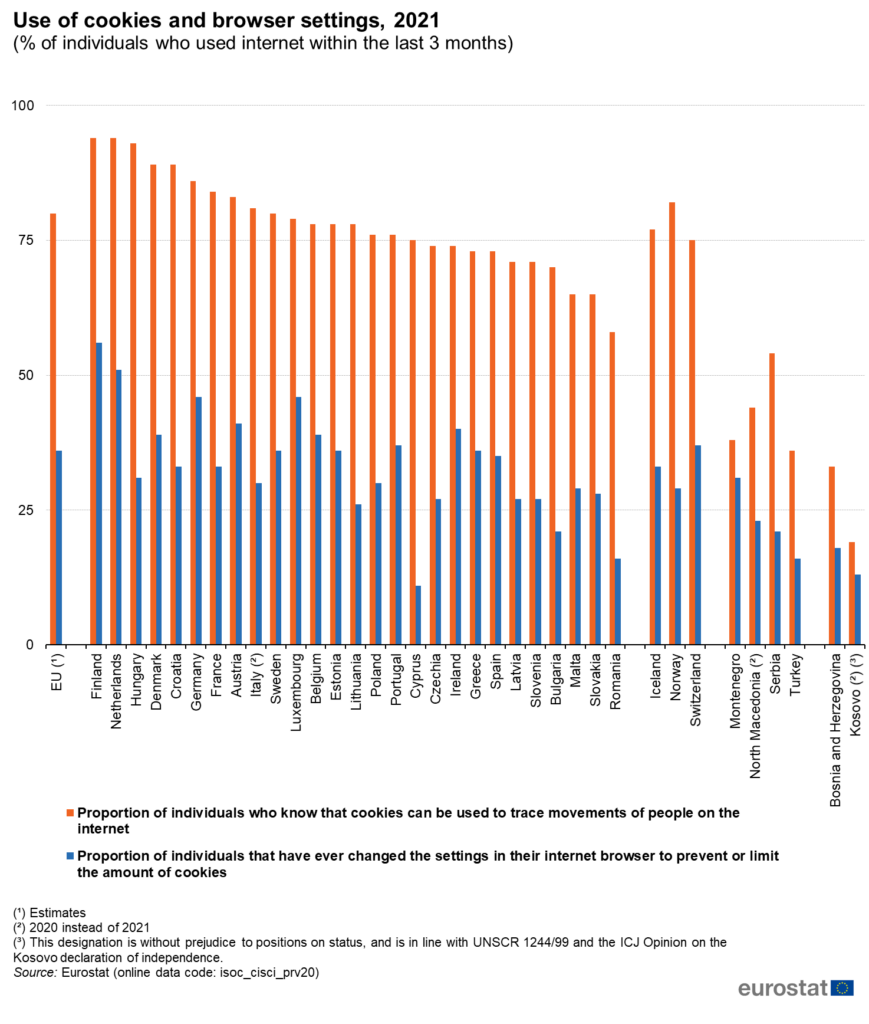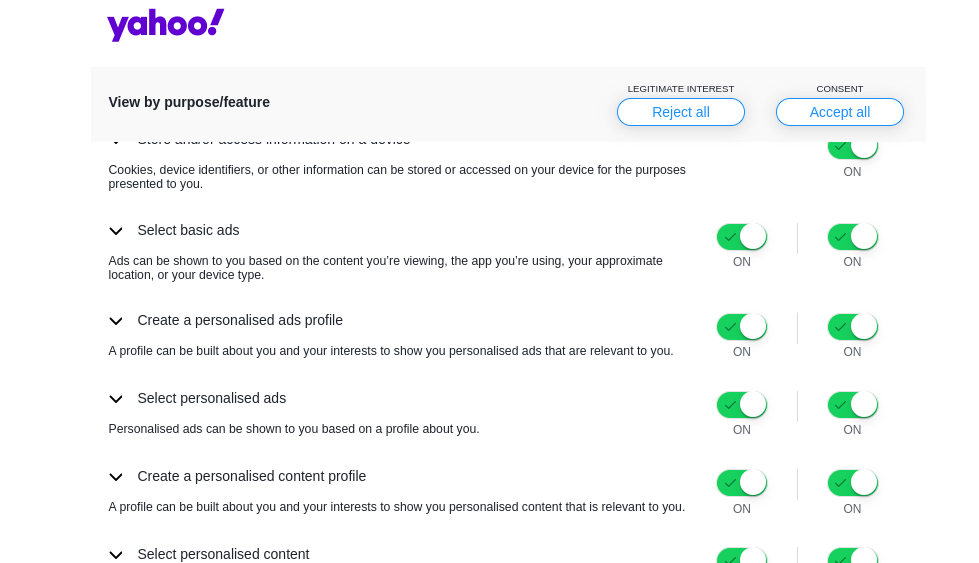We have been clicking on cookie approval and rejection buttons for four years now. Unbelievable, but I’m getting used to it. Whereas many internet users regard the popup windows enforced by GDPR annoying, the result is that people have a way to gain improved privacy. Statistics collected by the European Union indicate that more than half of Europeans actually made a choice when a cookie window appeared in their browsers.
Eurostat, the statistics headquarters of EU, has collected a set of data called Digital economy and society statistics – households and individuals. In other words, it is statistics about internet usage at European homes in 2021.
First, a bit of background information before we look at privacy related statistics. On average, 94% of homes in cities and 92% in towns and suburbs had internet access in 2021 in the EU region. In rural areas the average was 89%. So, the EU region is practically covered with wired or wireless internet. The highest rate of homes that had internet was in Luxembourg and in the Netherlands (99% in both). Next highest home connectivity was in Finland, Ireland, Denmark, Spain and Austria (95% in all of them). Even Bulgaria that had the lowest internet access rate in EU, reported 84%.
Just like elsewhere in the world, in Europe most people like to follow and participate in social media, like Facebook, Twitter, Instagram, or Pinterest. The average rate in EU countries was 57% for people who accessed social media services in 2021. Most active in social media were residents of Iceland and Norway (not EU countries, but have close ties and agreements with EU) with participation rate of 93% and 88%. Incredible, but practically every person in Iceland spends time in social media. The lowest social media activity was in big European countries Italy, Germany and France (access rate between 48% and 45%). Perhaps traditions favor socializing in bars and restaurants in these countries?
Managing privacy and cybersecurity is particularly important when accessing social media services. The enterprises behind the services are known to track users, record individuals’ behavior, collect personal and sensitive data, and build accurate profiles of people for marketing purposes. Viruses, ransomware, and other dangerous pieces of software are routinely distributed via social networks.
GDPR is a EU regulation designed to protect individuals from rampant tracking and collection of personal data. It requires services to clearly ask for user’s permission for the data they want to collect. If the user says no, I don’t let you collect anything, services must respect the choice.

Despite all the complaints from users, the statistics indicate that they actually click the GDPR buttons, and manage access to their data. On average, 73% of EU residents actively made choices for their privacy. This is a surprisingly high value. I would go as far as labeling GDPR a success from privacy perspective. The most active people to manage cookie choices were in Finland, the Netherlands, Iceland, Norway, and in Switzerland.
Probably because of GDPR, the awareness of cookies is high among European internet users. On average, 80% of people in EU countries know what cookies are and that they can be used to track individuals. The awareness about cookies is remarkably high, but few people know how to change, or have bothered to change their browser settings to prevent data collection. Only two countries, Finland and Netherlands, have more than 50% internet users who have personalized browser settings. In Cyprus, only 11% of people of adjusted their browser settings.

Most people simply use Google Chrome on their Android phones, Safari on iPhone and Mac, and Microsoft Edge on Windows computers. They are the only installed browsers when a new device is started for the first time, and are automatically launched when a browser is required. These three products are the most greedy personal data collectors as discovered by a number of studies.
It seems like there is a market for browsers that come with strict privacy and security settings by default. Brave is one of them, Librewolf and Vivaldi are privacy-focused products as well. Privacy focused mobile browsers are, for instance, Qwant and DuckDuckGo.
Then, it is only a question how to convince an average internet user to download an additional browser on a laptop, phone or tablet?

